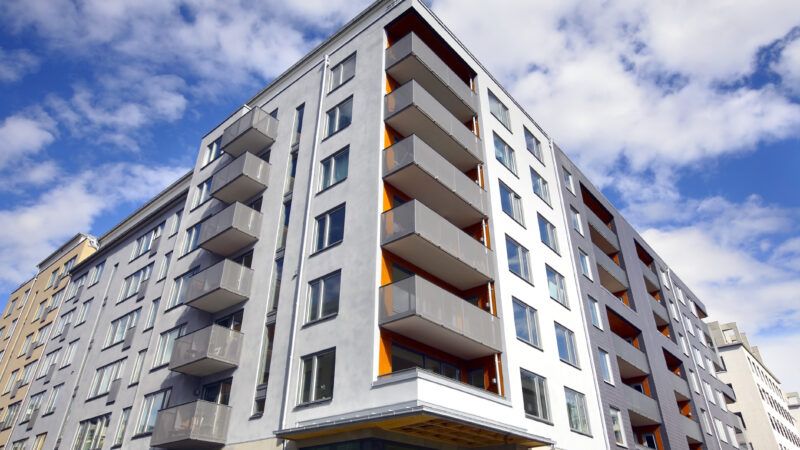Rent Control Delayed but Not Dead in California
Plus: Arkansas legalizes ADUs, activists sue to stop missing middle housing, and Trump's housing plans for federal lands

Happy Tuesday, and welcome to another edition of Rent Free. This week's stories include:
- California lawmakers delay a bill to tighten the state's rent control law.
- Neighborhood activists in Roanoke, Virginia, sue to stop missing middle reforms.
- Arkansas passes accessory dwelling unit reform.
California Rent Control Bill Pulled
The California Legislature will not be tightening the state's rent control law this year.
This past Tuesday, Assemblymember Ash Kalra (D–San Jose) pulled his bill, Assembly Bill 1157, which would have capped statewide rent increases at residential properties to the lesser of 2 percent plus inflation or 5 percent.
Current state law allows rent increases of up to 10 percent. Kalra's bill would have also expanded California's statewide rent control policy to single-family homes and condominiums.
Rent Free Newsletter by Christian Britschgi. Get more of Christian's urban regulation, development, and zoning coverage.
Kalra's bill isn't fully dead. KQED reports it will be considered next year in the latter half of the California Legislature's biennial session.
A.B. 1157 had passed the Assembly's housing committee. It was just a few years ago that California became the second state in the country (after Oregon) to adopt statewide rent controls.
Kalra's bill naturally attracted the opposition of the state's landlords and real estate interests. Some of the YIMBY groups that had supported California's 2019 rent control law came out against Kalra's bill as excessively restrictive.
Nevertheless, rent control's popularity as a solution to high rents is growing. Just last week, the Washington state Legislature approved a statewide rent control measure.
Despite the rehabilitation of rent control's image, it remains as bad an idea as ever.
Arkansas Legalizes ADUs
Last week, Arkansas Gov. Sarah Huckabee Sanders signed into law House Bill 1503, which requires municipal governments to allow accessory dwelling units (ADUs) on single-family properties.
Big win for affordable housing in Arkansas! ????
Gov. @SarahHuckabee Sanders has signed my bill giving Arkansans the right to build Accessory Dwelling Units (ADUs) like backyard cottages and garage apartments.
More options for families, seniors, and young people are on the way! pic.twitter.com/akIUJUetok
— Rep. Nicole Clowney (@NicoleClowneyAR) April 25, 2025
Under the new law, property owners can build an ADU that's 75 percent of the size of the primary dwelling or 1,000 square feet (whichever is less). Local governments will be required to approve these units without requiring public hearings or special permits.
H.B. 1503 also prohibits local governments from imposing minimum parking standards, certain aesthetic design features, and owner-occupancy requirements. Impact fees are capped at $250.
All told, it's a pretty clean, thorough ADU legalization that precludes any number of local regulations that could typically make ADU construction impractical. It's proof that this kind of YIMBY reform is becoming more science than art.
Another Lawsuit Challenges Missing Middle Reform in Virginia
On the local front, neighborhood activists in Roanoke, Virginia, are suing to overturn the city's "missing middle" reforms.
Back in March 2024, Roanoke passed zoning reforms that allowed ADUs, duplexes, and triplexes in single-family neighborhoods.
As has happened in other Virginia communities that have adopted similar reforms, the zoning changes immediately provoked a lawsuit from critics who argued the City Council didn't give the proper public notice before voting on the changes.
As the Roanoke Rambler reports, the city attempted to cure that procedural violation by repassing its zoning reforms in September 2024. Plaintiffs, however, continue to argue that the new reforms irrationally increase density, which does nothing for affordable housing but does increase traffic, noise, and the like.
The Rambler notes that only a few dozen units legalized by the 2024 zoning reforms have been approved by the city.
That's to be expected. In localities that legalize missing middle housing, the typical result is a slight increase in new duplexes, triplexes, and ADUs being built.
Critics are factually correct when they say that this small increase in construction will have a minimal impact on aggregate home prices and rents.
Nevertheless, missing middle units are typically cheaper than the single-family home that would be built instead. In that way, they do provide some more affordable options in desirable neighborhoods. Homebuyers and renters benefit from the additional choice. Property owners benefit from the additional ability to develop their properties.
Roanoke is currently attempting to get the lawsuit challenging the zoning reforms dismissed.
In September 2024, a judge struck down Arlington, Virginia's missing middle reforms in response to a similar lawsuit.
Quick Links
- The New York Times covers the Trump administration's plans for building housing on federal lands.
- Pittsburgh's planning commission recommends that the City Council require that new apartment buildings include money-losing below-market-rate units.
- The White House budget proposal includes major cuts to federal housing programs.
- An ambitious zoning reform package is reportedly dead in the Minnesota Legislature.
- Could the California Environmental Quality Act stop Trump's plans to reopen Alcatraz?
Rent Free is a weekly newsletter from Christian Britschgi on urbanism and the fight for less regulation, more housing, more property rights, and more freedom in America's cities.


Show Comments (19)